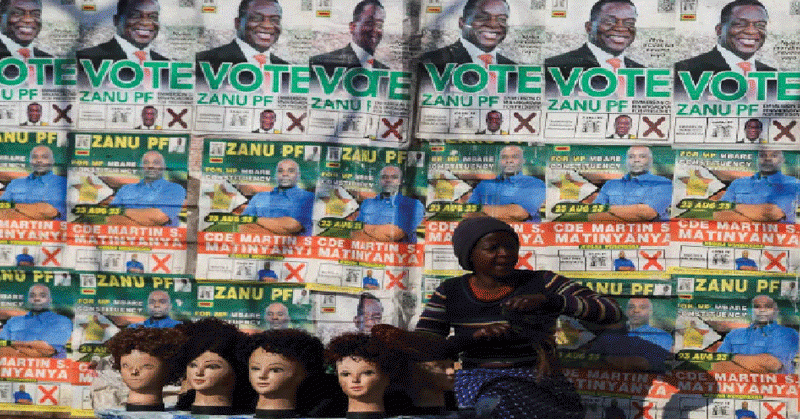
TINASHE KAIRIZA
THE Council on Foreign Relations (CFR) forecasts that Zimbabwe’s disputed polls staged last week derail the country’s efforts to extinguish its US$14 billion external debt and further stagnate Harare’s drive to mend frayed relations with the West, particularly Washington.
Incumbent President Emmerson Mnangagwa emerged victorious from the contested polls after polling 52,6% million of the vote against 44% garnered by his closest rival Nelson Chamisa of the Citizens Coalition for Change (CCC).
In the aftermath of the vote, several observer missions, including the Southern African Development Community (Sadc), African Union (AU), Commonwealth and the European Union (EU) passed adverse reports on the polls’ credibility.
Three months before the polls, Zimbabwe initiated a debt repayment plan facilitated by former Mozambican head of state Joaquim Chissano and African Development Bank (AfDB) president Akinwumi Adesina, culminating in high-level meetings during which Harare expressed commitment to clear its arrears.
Chissano observed last week’s polls.
Council on Foreign Relations senior fellow for Africa policy studies Michelle Gavin said Harare’s quest to resolve its debt puzzle was worsened due to last week’s perceived shambolic elections.
- Cheeky armed robbers jailed 10 years each
- Dangers of Arab Spring in SA
- Dangers of Arab Spring in SA
- Zimbabwe is closed for business, says think tank
Keep Reading
“Voter suppression and intimidation directed by the government marred Zimbabwe’s elections, which reaffirmed incumbent Emmerson Mnangagwa’s power and will likely prolong the country’s dysfunction and severe economic woes,” she wrote in an article published on the US foreign policy think tank’s website.
“A process intended to bring the government and its creditors to an agreement on restructuring Zimbabwe’s US$14 billion in external debt — an essential step toward gaining new support from international financial institutions — involves several economic and political benchmarks, including a credible election.”
Gavin, who served as US ambassador to Botswana from 2011 to 2014, highlighted that Zimbabwe could only unlock fresh lines of credit from the US on condition the country held credible polls.
Washington slapped Harare with sanctions in 2001 at the height of chaotic land seizures rolled by Zimbabwe’s late leader Robert Mugabe.
From that time and until now, the US, under its Zimbabwe Economic and Democracy Recovery Act (Zidera), has maintained the sanction grip, which Harare blames for the prolonged economic turmoil.
“Similarly, current US legislation prohibits US support for multilateral debt relief or credit for Zimbabwe until the country holds a free and fair election and restores the rule of law,” she said.
Zimbabwe’s intractable economic crisis, Gavin contended, frustrated regional integration efforts.
Due to its geographical position, Gavin also emphasised that Zimbabwe’s deep-seated economic crisis could potentially plunge the whole region into turmoil.
“As former Mozambican President Joaquim Chissano noted earlier this year, Zimbabwe’s crisis “is having terrible consequences for the region as Zimbabwe lies at the heart of southern Africa,” she wrote.
“Despite the spill-over effects of the country’s downward spiral, for years Sadc largely ignored political repression in Zimbabwe, as neighbouring leaders are reluctant to criticise Zimbabwe’s ruling party, which shares liberation movement credentials with other dominant parties in the region, including South Africa’s African National Congress (ANC).”
Attracting Foreign Direct Investment (FDI), particularly from the West, Gavin indicated would remain elusive.
However, she pointed out that owing to Mnangagwa’s victory last week, Zimbabwe would continue gravitating towards its traditional allies, notably Russia and China.
“Zimbabwe’s political instability has made it the target of Western sanctions, and the growing influence of competing powers such as China and Russia has pushed Mnangagwa further from the West. What might a second Mnangagwa term mean for the future of Zimbabwe’s engagement with the US, China, and Russia?” she said.
“But for many Western companies, Zimbabwe is an unattractive place to do business, because corruption and blurred lines between the ruling party, the military, and the state itself have distorted the investment climate.”






